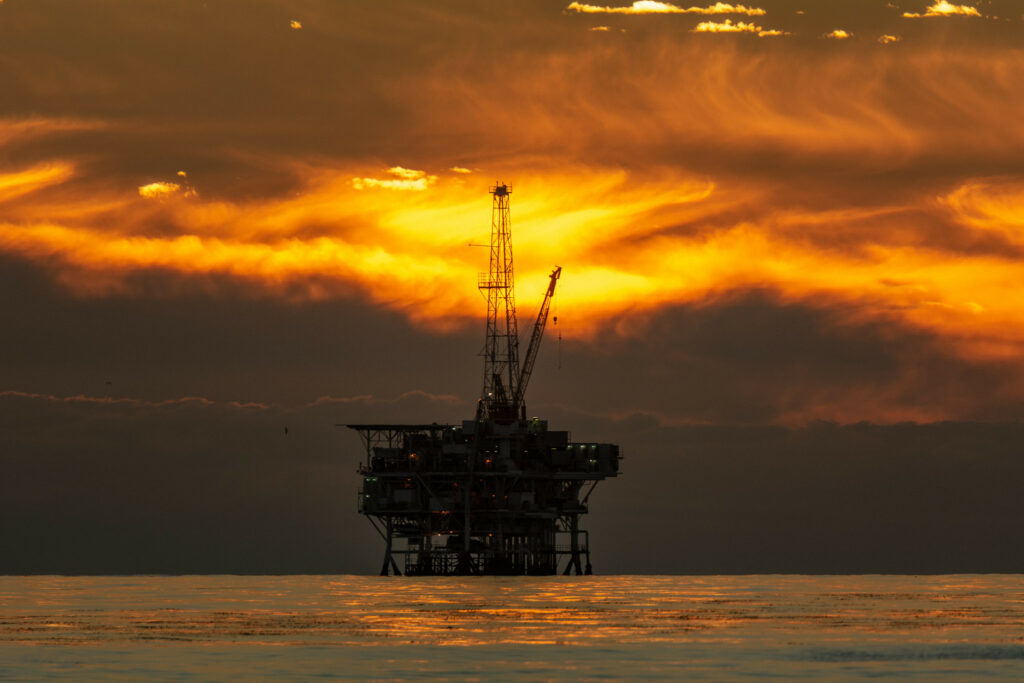Secretary of state for business, energy and industrial strategy (BEIS) Kwasi Kwarteng has called on North Sea oil and gas producers to invest in “the clean energy technologies of the future”.
In an open letter sent on 30 April, the energy secretary reaffirmed his support for the oil and gas industry following a number of protests against the expansion of the UK’s production, in particular from Just Stop Oil activists in recent months.
“I want to also be clear that we will not bend to the will of activists who naively want us to extinguish production in the UK Continental Shelf – doing so would put energy security and British jobs at risk, and simply increases foreign imports, whilst not reducing demand,” wrote Kwarteng.
“Scaling up, accelerating and investing in home-grown energy production will support us in continuing to grow the British economy, create good jobs across the country, and crucially bring down consumer bills in the long-term.”
It follows the release of the British Energy Security Strategy at the beginning of April, which confirmed that a new licensing round for North Sea oil and gas is planned for Autumn, as well as the creation of a new taskforce to provide bespoke support to such developments.
The government says oil and gas have an important role to play in the transition to a low carbon energy system and in Britain’s energy security amid continued geopolitical turmoil by insulating the country from a reliance on Russian hydrocarbons.
But in return for this support of the industry, the Prime Minister, the chancellor and Kwarteng want to see clear plans from oil and gas companies as to how they will reinvest profits in the North Sea and into clean energy technologies, Kwarteng wrote.
He is set to meet with the industry in the coming weeks, and expects each company to set out how it will “double down on investments in the clean energy transition”.
Today (3 May), oil and gas giant bp has announced it will invest £18 billion into the UK’s energy system by 2030. This will include expansion of its offshore wind developments in partnership with EnBW following a successful ScotWind bid, investing in the wider offshore wind infrastructure such as ports, harbours and shipyards and supporting reskilling of workers.
The investment will also target further expansion of the company’s electric vehicle charging network, with over £1 billion to go towards approximately tripling the number of bp’s UK charging points by 2030 – plans it announced in March. Last week, bp signed a strategic partnership with Volkswagen to rollout up to 8,000 chargepoints by 2024 across Europe.
Additional investment will also go towards creating two large-scale hydrogen production facilities – H2 Teesside and HyGreen Teesside – as well as developing carbon capture and storage projects and working with Aberdeen Council on decarbonisation projects.
In regards to the North Sea, the funding will include developing oil and gas projects to support near term security of supply, the company said, investigating the potential of expanding its existing hubs and progressing the electrification of its assets.
“We’re backing Britain,” said Bernard Looney, chief executive officer of bp, as he highlighted the company has operated in the North Sea for more than 50 years.
“We’re fully committed to the UK’s energy transition – providing reliable home-grown energy and, at the same time, focusing on the drive to net zero. And we have ambitious plans to do more and to go faster. Our plans go beyond just infrastructure – they see us supporting the economy, skills development and job opportunities in the communities where we operate. We are all in.”
bp saw its profits surge to £9.5 billion ($12.8 billion) for 2021 due to the record high oil and gas prices. For the first three months of 2022, the company’s underlying profits hit £5 billion ($6.2 billion) as prices grew even further, driven in part by the Russian invasion of Ukraine.
The dramatic jump in the profits of oil and gas companies amid the continued energy crisis – which currently threatens to push some 6.3 million households into fuel stress due to bills increasing by 54% in April – has led to calls from the Labour Party amongst others for a windfall tax.
This has again been reiterated following bp’s quarterly update, with both Labour and Green party politicians amidst others criticising the soaring profits.
Caroline Lucas, Green MP for Brighton Pavilion and former leader and co-leader of the Green Party for example tweeted: “Soaring gas prices mean BP profits of $6.2bn in first 3 months of 2022, while millions struggle to make ends meet. Government refusal to levy #WindfallTax on obscene profits & support those with huge energy bills shows whose side they’re on – it’s grotesque”
There is little disagreement that the UK needs to move away from a reliance on international imports, and Russian oil and gas in particular, to ensure energy security. While it meets just 4% of its gas demand using Russian imports, as the second biggest gas producer in the world Russia has significant sway over the wholesale market and the price of gas.
However, how to move away has divided people, with the government’s backing of North Sea oil and gas expansion criticised by many as incompatible with the UK’s net zero goals.
Research in March from the Energy & Climate Intelligence Unit found that pursuing heat pumps and energy efficiency measures would be a faster route to getting off of Russian gas than the proposed expansion of drilling in the North Sea.
Within this, it highlighted that expanding domestic oil and gas fields wouldn’t necessarily reduce prices – as oil and gas companies are not bound to sell to the UK and given a high price environment would simply sell to the highest bidder, as they do now – as well as it taking until at least 2028 before the first new fields would come online.






